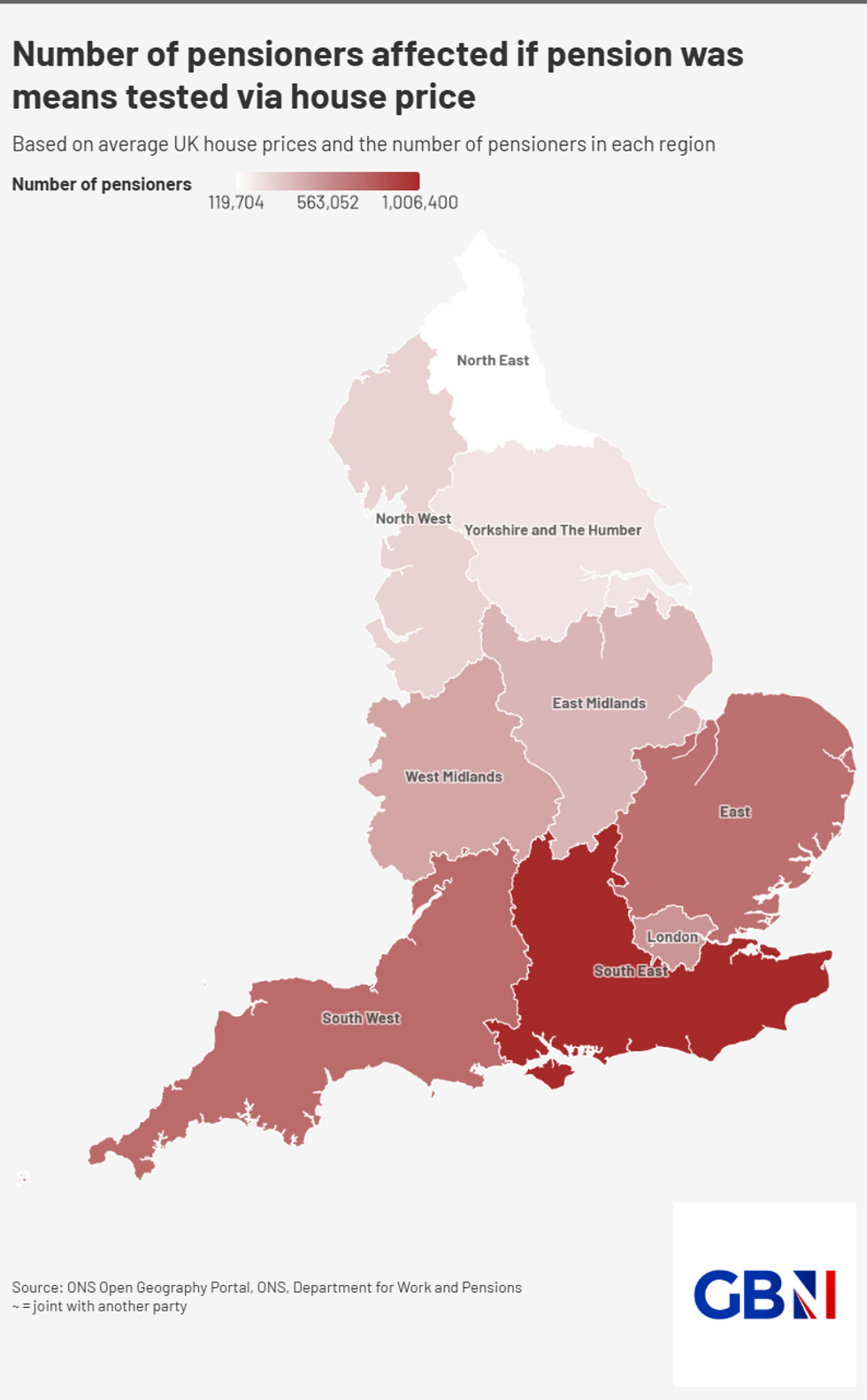State pensioners could be £18,000 worse-off in retirement under age rise proposal
State pensioners could be £18,00 worse-off in retirement if the Labour Government chooses to raise the official retirement age sooner-than-expected, analysts are warning.Workers in their early fifties face potential losses if ministers expedite plans to raise the state pension age to 68, according to new research by Rathbones.Concerns have been raised about the long-term viability of the state pension as the cost of the retirement benefit skyrockets.Acceleration of raising the pension age could see the threshold reached by 2039-41 rather than the currently scheduled 2044-46.Those aged between 51 and 53 would forfeit an entire year of pension payments under the proposed changes. Investment firm Rathbones has calculated the financial impact, revealing substantial losses for this generation of workers.The Government's ongoing review, set to conclude in 2029, will determine whether to bring forward these changes. Such a decision would significantly affect retirement planning for millions currently in their early fifties.Rathbones' analysis reveals that 51-year-old workers stand to lose £17,774, whilst those aged 52 and 53 face forfeiting £17,340 and £16,918 respectively. These figures assume the triple lock guarantee remains intact, ensuring minimum annual increases of 2.5 per cent.Do you have a money story you’d like to share? Get in touch by emailing money@gbnews.uk.The calculations are based on the current full state pension of £230.25 weekly, equating to £11,973 annually. The investment firm factored in the Bank of England's 2 per cent inflation target for future projections.Without the triple lock protection, losses would be lower but still substantial. Workers aged 51 would forfeit £16,436, with 52-year-olds losing £16,114 and 53-year-olds missing out on £15,798.Present legislation mandates the state pension age will increase to 67 by 2028, before reaching 68 between 2044 and 2046. However, ministers are considering bringing forward the latter change as part of their comprehensive review.The acceleration would mean those currently aged 51 to 53 would reach pension age in 2039-41, rather than the originally planned 2044-46. This represents a significant shift in retirement timelines for workers who have based their financial planning on existing schedules. The review examining these potential changes is due to report its findings in 2029. Any decision to expedite the increase would affect millions of workers' retirement preparations.In recent months, the triple lock's future has become uncertain, with the Institute for Fiscal Studies warning the guarantee could cost taxpayers £40 billion annually by 2050. This raises serious questions about its long-term viability.LATEST DEVELOPMENTS:Labour's 'double whammy' death tax raid slammed as Rachel Reeves prepares to slash reliefPension WIN as Britons avoid tax raid on retirement savings - how to claim £4k refund from HMRCState pension payment hack could boost retirement incomes by £954 but Britons urged to be 'careful'Rebecca Williams, Divisional Lead of Financial Planning at Rathbones, warns: "With longevity increasing and population pressures mounting, future generations appear set to face a less generous state pension regime than that enjoyed by many of today's retirees. "The situation appears particularly precarious for those in their early 50s who face real prospect of missing out. The state pension alone is not enough for a comfortable retirement. Individuals need a broad foundation built on workplace pensions, private savings, and the ongoing support of pension tax relief. "Cracks are beginning to show in the system, and they must be addressed urgently if we are to maintain faith in the UK’s pension framework and ensure people are equipped not just to survive, but to thrive in later life."

State pensioners could be £18,00 worse-off in retirement if the Labour Government chooses to raise the official retirement age sooner-than-expected, analysts are warning.
Workers in their early fifties face potential losses if ministers expedite plans to raise the state pension age to 68, according to new research by Rathbones.
Concerns have been raised about the long-term viability of the state pension as the cost of the retirement benefit skyrockets.
Acceleration of raising the pension age could see the threshold reached by 2039-41 rather than the currently scheduled 2044-46.

Those aged between 51 and 53 would forfeit an entire year of pension payments under the proposed changes. Investment firm Rathbones has calculated the financial impact, revealing substantial losses for this generation of workers.
The Government's ongoing review, set to conclude in 2029, will determine whether to bring forward these changes. Such a decision would significantly affect retirement planning for millions currently in their early fifties.
Rathbones' analysis reveals that 51-year-old workers stand to lose £17,774, whilst those aged 52 and 53 face forfeiting £17,340 and £16,918 respectively.
These figures assume the triple lock guarantee remains intact, ensuring minimum annual increases of 2.5 per cent.
Do you have a money story you’d like to share? Get in touch by emailing money@gbnews.uk.

The calculations are based on the current full state pension of £230.25 weekly, equating to £11,973 annually. The investment firm factored in the Bank of England's 2 per cent inflation target for future projections.
Without the triple lock protection, losses would be lower but still substantial. Workers aged 51 would forfeit £16,436, with 52-year-olds losing £16,114 and 53-year-olds missing out on £15,798.
Present legislation mandates the state pension age will increase to 67 by 2028, before reaching 68 between 2044 and 2046. However, ministers are considering bringing forward the latter change as part of their comprehensive review.
The acceleration would mean those currently aged 51 to 53 would reach pension age in 2039-41, rather than the originally planned 2044-46. This represents a significant shift in retirement timelines for workers who have based their financial planning on existing schedules.
The review examining these potential changes is due to report its findings in 2029. Any decision to expedite the increase would affect millions of workers' retirement preparations.
In recent months, the triple lock's future has become uncertain, with the Institute for Fiscal Studies warning the guarantee could cost taxpayers £40 billion annually by 2050. This raises serious questions about its long-term viability.
LATEST DEVELOPMENTS:
- Labour's 'double whammy' death tax raid slammed as Rachel Reeves prepares to slash relief
- Pension WIN as Britons avoid tax raid on retirement savings - how to claim £4k refund from HMRC
- State pension payment hack could boost retirement incomes by £954 but Britons urged to be 'careful'

Rebecca Williams, Divisional Lead of Financial Planning at Rathbones, warns: "With longevity increasing and population pressures mounting, future generations appear set to face a less generous state pension regime than that enjoyed by many of today's retirees.
"The situation appears particularly precarious for those in their early 50s who face real prospect of missing out. The state pension alone is not enough for a comfortable retirement. Individuals need a broad foundation built on workplace pensions, private savings, and the ongoing support of pension tax relief.
"Cracks are beginning to show in the system, and they must be addressed urgently if we are to maintain faith in the UK’s pension framework and ensure people are equipped not just to survive, but to thrive in later life."







































